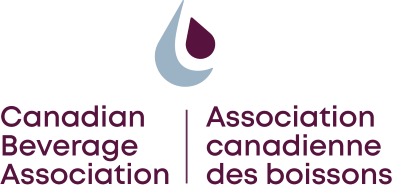TORONTO, Dec. 9, 2020 /CNW/ - More than twenty Canadian retail and consumer packaged goods companies, representing a substantial proportion of the nation's plastic packaging, are among the first to support new global "Golden Design Rules" to improve plastics recycling and reduce landfill and pollution.
The rules acknowledge the importance of plastic packaging for food quality and safety, while encouraging companies industrywide to make packaging decisions that better support recycling systems. In addition to keeping plastic out of landfill and nature, designing packaging to be more recyclable is an important first step in converting a take-make-waste linear economy into a circular economy where the ingredients of plastic packaging are captured and reused.
The Golden Design Rules were established and announced this week by members of The Consumer Goods Forum (CGF) Plastic Waste Coalition of Action, a coalition of some of the world's largest retail and consumer brands, based on voluntary 2025 targets and a common vision of a world where no plastic waste ends up in nature – land or sea.
The initial rules focus on the two priorities below. For specific details visit the CGF link here.
Golden Rule 1: Increase value in polyethylene terephthalate (PET) recycling. a) Use transparent and uncoloured PET (preferred), or transparent blue or green in all PET bottles; b) Ensure material choice, adhesive choice and size of sleeve or label is not problematic for recycling.
PET is one of the most commonly used plastic materials. This rule applies to all PET bottles in food and non-food applications, including beverages, home care products, personal care products, and more.
Golden Rule 2: Remove problematic elements from packaging including the following: undetectable carbon black, which frustrates plastics sorting and is sent to landfill; PVC or PVDC (polyvinylidene chloride or polyvinylidene dichloride) which are problematic in recycling streams; EPS or PS (expanded polystyrene or polystyrene) which have more recyclable alternatives; PETG (polyethylene terephthalate glycol) which contaminates batches of otherwise valuable PET recycling; and oxo-degradable plastics, which fragment into microplastics.
Many packaging products today still include materials that make recycling impossible or very difficult. This is one reason more plastic is not being recycled as well as it can be. The design and use of packaging combined with effective recycling systems and innovations, are considered key components to eliminate plastic waste.
The voluntary rules are designed to drive higher industry standards over time. Companies supporting the Golden Rules in Canada already include Amcor, Barilla Group, Coca-Cola Canada, Colgate Palmolive, Danone Canada, Essity, Henkel Canada Corporation, Johnson & Johnson Consumer Health, Kraft Heinz Canada, Loblaw Companies Limited, Maple Leaf Foods, Mars Canada, Metro Inc., Mondelēz Canada, Nestle Canada, PepsiCo Canada, RB, Save-On-Foods, SC Johnson Canada, Unilever Canada, Walmart Canada. A complete list of supporters is available at the CGF site here.
Quotes:
"Retailers and consumer product companies represent about one third of Canada's plastic waste. That means we should be at least a third of the solution. We design, make and sell the products. By making impactful packaging decisions we can keep plastics in the value chain and out of nature." Galen Weston, Executive Chairman, Loblaw Companies Limited, a co-sponsor of the global Consumer Goods Forum Plastic Waste Coalition of Action, alongside Unilever CEO, Alan Jope.
"Nestlé is pleased to join our industry colleagues in supporting the Golden Rules which align with our commitment to reducing unnecessary plastics and ensuring all of our packaging is reusable or recyclable by 2025. Agreeing to key principles around how to design for recycling is the critical first step in ensuring none of our packaging ends up in nature." Jeff Hamilton, President and CEO Nestlé Canada
"Walmart is a proud and strong supporter of the Golden Design Rules initiative. When industry and stakeholders come together with a common vision, we can accomplish important progress. Walmart is focused on sustainability in everything we do. Our bold goals help us to minimize our environmental footprint and get us closer to becoming a regenerative company." Horacio Barbeito, President and CEO, Walmart Canada.
"We have a responsibility to help solve the world's packaging waste problem, and that's why Coca-Cola is working toward making our packaging 100% recyclable by 2025. Our commitment to the Golden Design Rules is just one way that we are building better bottles for today and tomorrow." Darlene Nicosia, President, Coca-Cola Canada.
"As Canada's largest food and beverage company, we believe the Golden Design Rules are an important opportunity to have a united, industry-wide effort to reduce the amount of plastic that ends up in landfills and waterways. We are committed to making all of our packaging 100 per cent reusable, recyclable, or compostable by 2025, and this initiative will help build momentum to reach our goals." Bruno Keller, President, Kraft Heinz Canada.
"At PepsiCo, we believe that there is an opportunity to change how the world produces, distributes, consumes and disposes of foods and beverages in order to tackle the shared challenges we face. We're working toward a vision of a world where plastics need never become waste and we are pleased to endorse the Golden Design Rules." Richard Glover, President, PepsiCo Beverages Canada.
"Save-On-Foods has decades of commitment to addressing climate change through an evolving portfolio of key initiatives. Our customers raise important questions and bring forward local, provincial, national, and even global opportunities for our company to make a difference. We listen to them and take action. We're proud to support the Golden Design Rules to reduce plastic wastes and with this, working to make a positive difference for all Canadians." Darrell Jones, President, Save-On-Foods.
"Tackling the challenge of plastics recyclability will require unprecedented collaboration across industries, sectors and geographies, as well as between public and private organizations. At Mondelēz International, we are committed globally by 2025 to designing 100% of our packaging to be recycled. The Golden Design Rules represent one step on the journey towards this goal and demonstrate the potential of collective action to address challenges like plastic pollution." Martin Parent, President, Mondelēz Canada.
"We cannot achieve a circular plastics economy alone. Our vision is a world in which everyone works collaboratively to find solutions to end plastic waste. We applaud the work of the Consumer Goods Forum and fully endorse the Golden Rules which provide us with clear direction on how we can take action as a sector and within each of our businesses to ensure that plastic stays in the economy and out of the environment." Gary Wade, President, Unilever Canada.
"Our approach to managing packaging has always rested on best practices and the collaboration between our teams and suppliers. We are committed to ongoing improvement and innovation. The Golden rules are aligned with our approach to continuously improve our practices." Eric La Flèche, President and Chief Executive Officer, METRO.
"The alignment amongst our industry towards these Golden Design Rules represents an important and impactful action that Henkel is proud to join. These efforts are well-aligned with Henkel's comprehensive commitment to a circular economy for plastic and sustainable packaging, and the development of solutions that minimize and manage plastic waste." Rob Bertok, President Henkel Canada Corporation.
"At Mars Canada, we believe the world we want tomorrow starts with how we do business today, and we must work together as a global community to eliminate plastic waste and pollution. As part of our Sustainable in a Generation plan, we are taking action by reducing packaging that we don't need, exploring reuse models, redesigning the packaging we do need for circularity, and investing to close the loop with recycling systems that work for business and communities. Initiatives such as the Golden Design Rules will drive further progress towards a world where packaging never becomes waste." Jeremy Daveau, General Manager, Mars Canada.
SOURCE Food, Health & Consumer Products of Canada

FHCP, Michelle Saunders, Vice President, Sustainability, [email protected]; RCC, Philippe Cantin, Senior Director, Sustainability, Innovation and Circular Economy, [email protected]; Canadian Beverage Association, Carolyn Fell, Vice President, [email protected]


Share this article